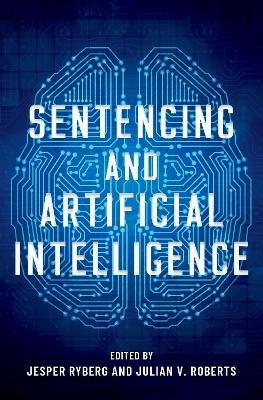
Sentencing and Artificial Intelligence
Oxford University Press Inc (Verlag)
978-0-19-753953-8 (ISBN)
Is it morally acceptable to use artificial intelligence (AI) in the determination of sentences on those who have broken the law? If so, how should such algorithms be used--and what are the consequences?
Jesper Ryberg and Julian V. Roberts bring together leading experts to answer these questions. Sentencing and Artificial Intelligence investigates to what extent, and under which conditions, justice and the social good may be promoted by allocating parts of the most important task of the criminal court--that of determining legal punishment--to computerized sentencing algorithms. The introduction of an AI-based sentencing system could save significant resources and increase consistency across jurisdictions. But it could also reproduce historical biases, decrease transparency in decision-making, and undermine trust in the justice system. Dealing with a wide-range of pertinent issues including the transparency of algorithmic-based decision-making, the fairness and morality of algorithmic sentencing decisions, and potential discrimination as a result of these practices, this volume offers avaluable insight on the future of sentencing.
Jesper Ryberg is Professor of Ethics and Philosophy of Law at Roskilde University and Head of Research Group for Criminal Justice Ethics. He is the author of, among others, Neurointerventions, Crime, and Punishment (OUP 2020), Sentencing Multiple Crimes (ed. with Roberts and de Keijser; OUP 2018) and Popular Punishment: On the Normative Significance of Public Opinion (ed. with J. V. Roberts; OUP 2014.) Julian V. Roberts is Professor of Criminology in the Faculty of Law, University of Oxford and was a member of the Sentencing Council of England and Wales and an advisor to the American Law Institute Model Penal Code Sentencing project. His recent books include Paying for the Past (OUP 2019), Criminal Justice: A Very Short Introduction (OUP 2015), and Popular Punishment (OUP 2014).
Acknowledgements
List of Contributors
Chapter One: Sentencing and Artificial Intelligence: Setting the Stage
Jesper Ryberg and Julian V. Roberts
Chapter Two: Sentencing and Algorithmic Transparency
Jesper Ryberg
Chapter Three: Sentencing and the right to reasons
Vincent Chiao
Chapter Four: Sentencing and the Conflict Between Algorithmic Accuracy and Transparency
Jesper Ryberg and Thomas S. Petersen
Chapter Five: Algorithm-based sentencing and discrimination
Kasper Lippert-Rasmussen
Chapter Six: Learning to discriminate: The Perfect Proxy Problem in Artificially Intelligent Crime Prediction
Benjamin Davies and Thomas Douglas
Chapter Seven: Enhancing the Integrity of the Sentencing Process Through the Use of Artificial Intelligence
Mirko Bagaric and Dan Hunter
Chapter Eight: The Compassionate Computer: Algorithms, Sentencing, and Mercy
Netanel Dagan and Shmuel Baron
Chapter Nine: Algorithmic Sentencing: Drawing Lessons from Human Factors Research
John Zerilli
Chapter Ten: Plea Bargaining, Principled Sentencing, and Artificial Intelligence
Richard Lippke
Chapter Eleven: Reconciling Artificial and Human Intelligence: Supplementing and Not Supplanting the Sentencing Judge
Mathis Schwarze and Julian V. Roberts
Chapter Twelve: Artificial Intelligence and Sentencing: Humans against the Machine
Sigrid van Wingerden & Mojca Plesnicar
Chapter Thirteen: Iudicium ex Machinae - The Ethical Challenges of Automated Decision-Making at Sentencing
Frej Klem Thomsen
Index
| Erscheinungsdatum | 07.02.2022 |
|---|---|
| Reihe/Serie | Studies in Penal Theory and Philosophy |
| Verlagsort | New York |
| Sprache | englisch |
| Maße | 242 x 164 mm |
| Gewicht | 558 g |
| Themenwelt | Geisteswissenschaften ► Philosophie ► Ethik |
| Recht / Steuern ► EU / Internationales Recht | |
| Recht / Steuern ► Strafrecht ► Kriminologie | |
| Recht / Steuern ► Strafrecht ► Strafverfahrensrecht | |
| ISBN-10 | 0-19-753953-X / 019753953X |
| ISBN-13 | 978-0-19-753953-8 / 9780197539538 |
| Zustand | Neuware |
| Informationen gemäß Produktsicherheitsverordnung (GPSR) | |
| Haben Sie eine Frage zum Produkt? |
aus dem Bereich


